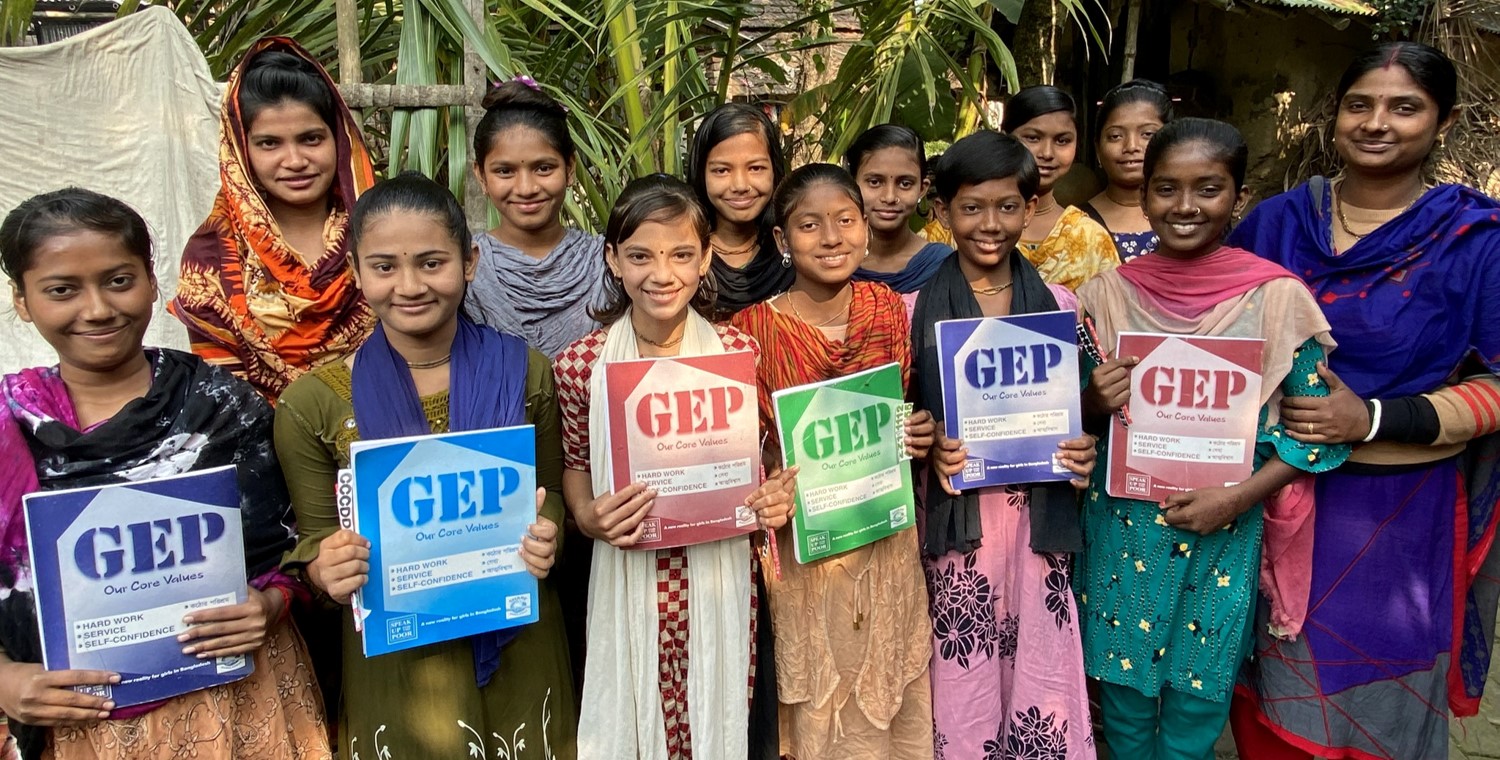
Mission
Speak Up for the Poor exists to transform the world on behalf of the poor and create a new reality for girls in poverty.
Life Challenges of the Women Served
In February 2021, Together Women Rise supported Speak Up for the Poor’s Girls Education Program (GEP) with a grant of just over $26,000, during a time when maximum grants were reduced due to Covid. That grant had a profound impact and was particularly critical during the height of Covid. A look back at the results of that effort reinforces the need to continue the work.
In Bangladesh, girls in poverty are considered second-class citizens, destined only for child marriage and domestic servitude. This means hundreds of thousands of girls across Bangladesh drop out of school early and are forced into illegal child marriages, some as early as age 13. These girls are often uneducated about sanitation and hygiene issues. They tend not to have positive teaching about their body and feminine health issues, and they tend not to have an adequate sense of safe behaviors to avoid exploitation and abuse.
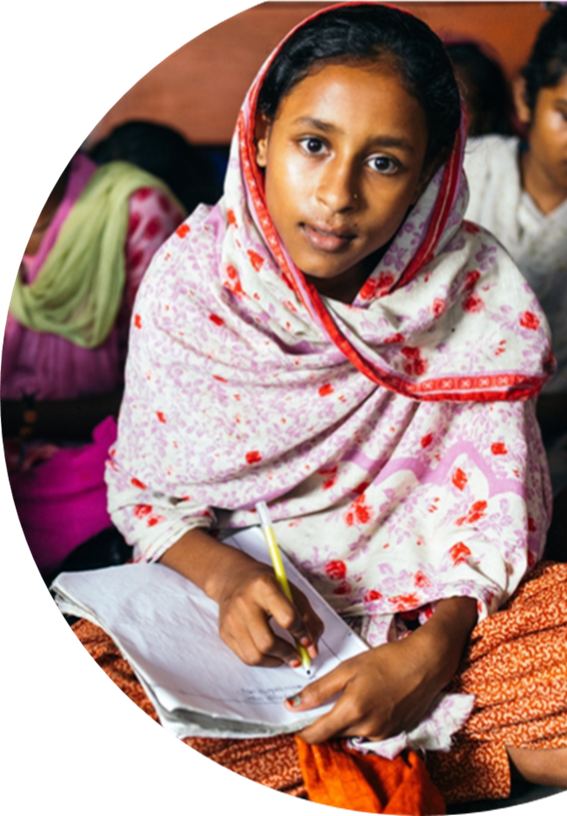 According to UNICEF, 51 percent of girls in Bangladesh are forced into illegal child marriages under the age of 18. Bangladesh is home to 38 million child brides, including currently married girls and women who were first married in childhood. Of these, 13 million married before age 15. It is among the top 10 countries in the world with the highest levels of child marriage.*
According to UNICEF, 51 percent of girls in Bangladesh are forced into illegal child marriages under the age of 18. Bangladesh is home to 38 million child brides, including currently married girls and women who were first married in childhood. Of these, 13 million married before age 15. It is among the top 10 countries in the world with the highest levels of child marriage.*
Girls who marry early face many obstacles and dangers. For every year a girl stays in school beyond the sixth grade, her future earning potential increases by 10 percent. Millions of girls are denied an education and are forever stuck without jobs or in menial, low-paying service jobs that further the cycle of female poverty. They are also vulnerable to being trafficked into prostitution. Brothels in Bangladesh are significantly populated by women who were married as children, divorced as young women, and forced into prostitution to feed their children. Girls who marry before age 15 are 50 percent more likely to suffer domestic abuse and violence from their husband. Child brides often do not understand their rights to bodily autonomy and safety, and globally nearly 50 percent of child brides believe that their husband has the right to abuse them.
The main goal of Speak Up for the Poor’s Girls Health and Safety Training Project is to provide girls and women in the Girls Education Program (GEP) with the information and resources they need for optimal health, safety, and well-being in their context. The project is designed to achieve the following outcomes for every GEP girl participating in Health and Safety Training:
- How to properly wash her hands and teach family members to do the same.
- An age-appropriate understanding of feminine hygiene issues, how to access products for feminine hygiene, who to talk to about it, and how to receive help.
- An understanding of the basics of infections and skin diseases, how to avoid them, and how to address them.
- Both a medical evaluation and a self-evaluation to assess personal health.
- An understanding the basics of water hygiene for bathing, cleaning, and cooking, and a self-evaluation of her living environment to identify potential water hygiene issues.
- Participation in a village youth club to consider how to solve local health and safety problems, such as lighting, pathways, latrines, or obtaining needed supplies. Learning to problem-solve and think creatively.
- An understanding of everyone’s right to bodily autonomy, the right to make the decisions that affect one’s own body and life, and who to talk to about unwanted touching or abuse.
- An understanding of local laws regarding child abuse, child marriage, sexual abuse, domestic abuse, and spousal rape, and who to talk to if they are at risk of or experience any of these.
- Growth in self-confidence, determination to reach personal goals, using one’s voice, and teaching others about health and safety.
Being able to educate girls and young women regarding these health and safety topics and practices made a substantial difference at a crucial time. Because schools were closed for almost a year and a half in Bangladesh due to Covid, the socially distanced trainings and materials were one of the few sources of formal education about matters of health and safety that many girls and their families in the working area received during that time period – the only source in many cases. The fact that Speak Up for the Poor continued to provide socially-distanced learning opportunities (health and safety seminars, other life skills training, and academic tutoring and mentoring in small groups) throughout the time of formal school closures in Bangladesh encouraged many parents of girls to keep their daughters in school, rather than using the pretext of long school closures to rationalize giving their daughters in early marriage, as frequently happened in Bangladesh during the height of the pandemic.
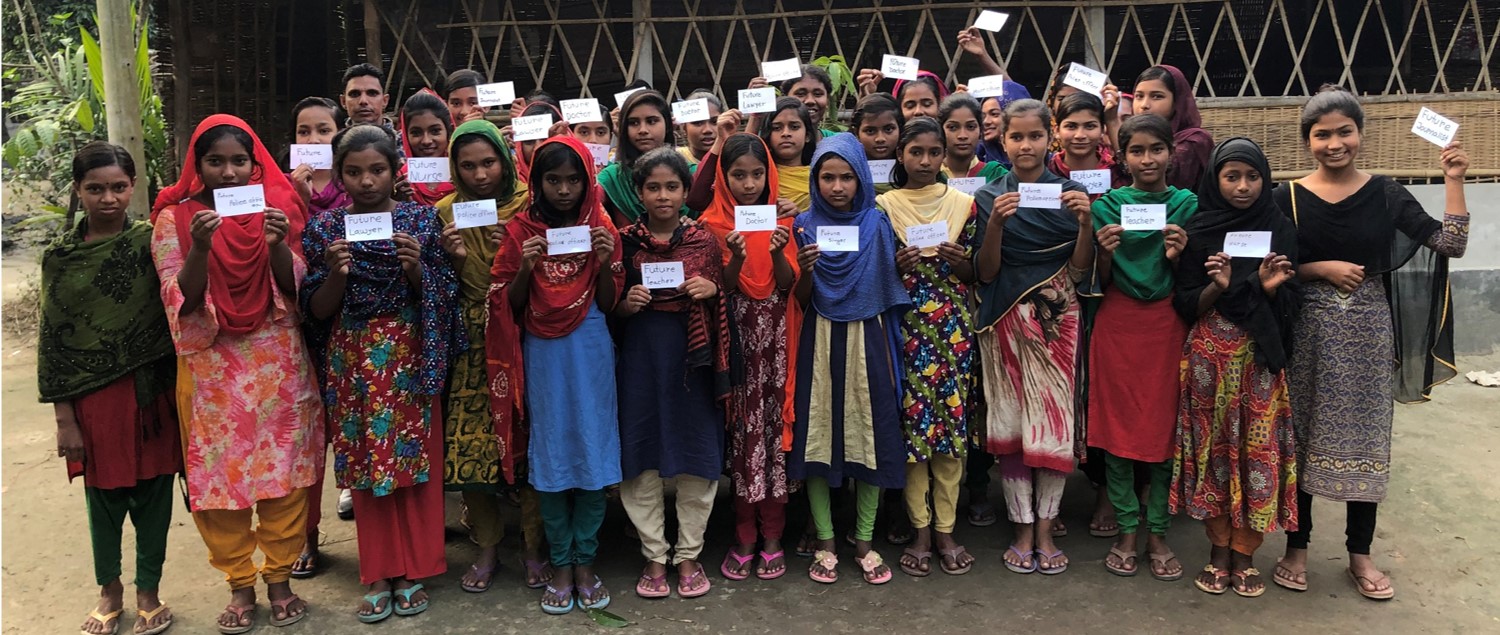
Early marriage for girls is such a common cultural feature in Bangladesh, that despite strong efforts, it has not been eradicated in Speak Up for the Poor’s working area. It remains a challenge, but because of the GEP, the rate of child marriage in the area has been significantly reduced. Many hundreds of girls have been able to avoid child marriages and stay in school. For example, Speak Up for the Poor’s staff reported early in 2023 that in one of the 35 urban and rural communities in which the GEP operates, there were no child marriages at all in 2022. This is a tremendous accomplishment, along with a reduced frequency of child marriage in all of the other communities in which Speak Up for the Poor works. This success in that particular village is unprecedented and so encouraging, and while setbacks continue from more traditionally oriented adults and parents in the communities where the GEP operates due to difficult-to-change cultural dynamics, this is an example of and testimony to the effectiveness of the GEP in changing the attitudes of many families regarding early marriage and regarding education for girls.
As Bangladesh has emerged from the pandemic and schools have reopened, Speak Up for the Poor has continued to offer monthly health and safety training to the girls and young women in the GEP, along with academic tutoring and mentoring in life skills and professional skills.
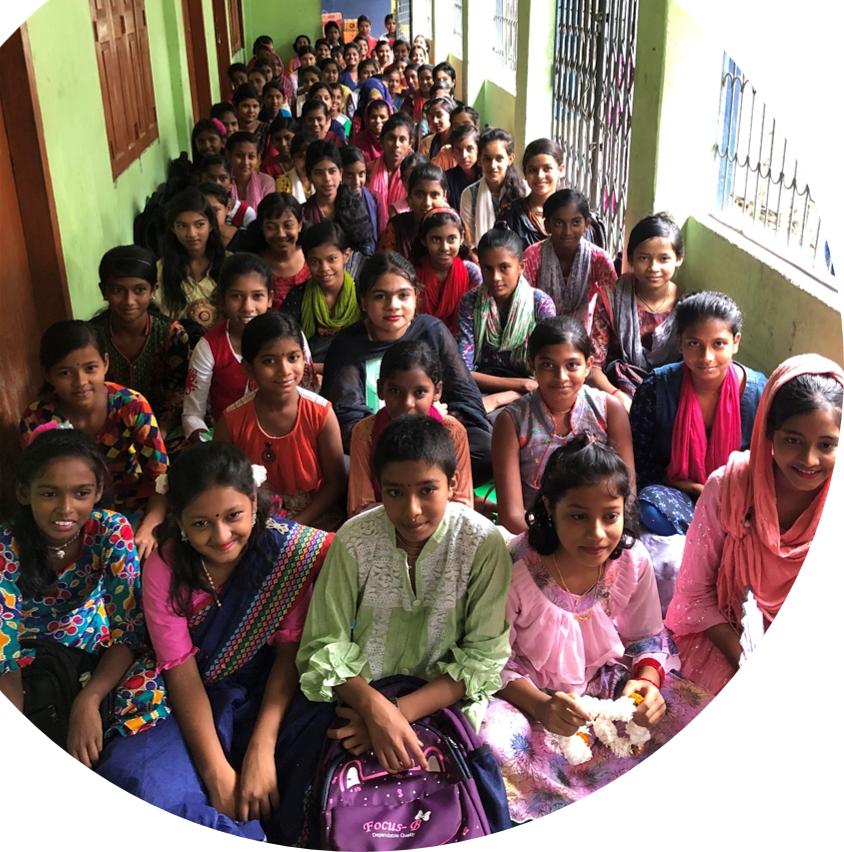 While changing as a result of GEP trainings and discussions on the subject, cultural taboos surrounding discussion of menstrual health and other women’s health issues still exist. The progress that has been made reflects the impact of the women’s health and safety trainings during and after the pandemic. The women on Speak Up for the Poor’s staff team have become increasingly confident and direct in speaking with girls about these issues. Taboos surrounding discussions of menstruation have been reduced as trainings and discussions led by female staff and female medical professionals have contributed to a more comfortable and normal atmosphere to discuss these important subjects.
While changing as a result of GEP trainings and discussions on the subject, cultural taboos surrounding discussion of menstrual health and other women’s health issues still exist. The progress that has been made reflects the impact of the women’s health and safety trainings during and after the pandemic. The women on Speak Up for the Poor’s staff team have become increasingly confident and direct in speaking with girls about these issues. Taboos surrounding discussions of menstruation have been reduced as trainings and discussions led by female staff and female medical professionals have contributed to a more comfortable and normal atmosphere to discuss these important subjects.
Another significant impact of the project during the height of Covid – and that is still true today – is that significantly more GEP girls than ever before now want to become nurses. During the period of the previous grant from Together Women Rise, one of the GEP nursing school students or nursing school graduates gave part of the training at the large health seminars offered in the villages of Speak Up for the Poor’s working area. As a result, almost every girl in the entire GEP was able to see an educated young woman in her early- to mid-20s, from the exact same background (traditional rural villages where, apart from this program, very few girls ever finished high school), teaching others about health matters. This greatly inspired young girls, and many decided that they wanted to become nurses as well. Today, of the 235 young women currently studying in college or other higher education through the GEP, 47 are now in nursing school. Speak Up for the Poor anticipates even more nursing school admissions in 2024. In a context where an insufficient number of trained health professionals exist, this is a valuable ongoing impact of the Girls Health and Safety Program: dozens of young women who wish to devote their careers to health professions will be able to educate and care for others.
The Project
At least 150 new girls join the GEP from a waiting list each year in January, so there are many younger girls who are new to the program since the 2021 grant. Ongoing health and safety trainings expose these new girls to these critically important concepts. This new grant from Together Women Rise will facilitate health seminars and continued health and safety trainings in the year ahead.
This project includes: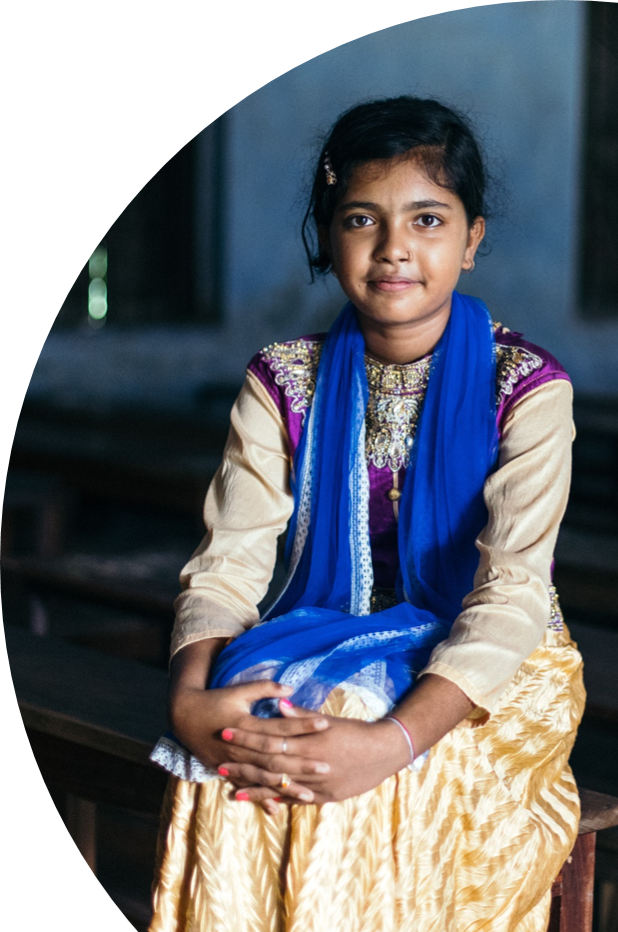
- Continuing a series of Health and Safety Seminars to the girls and young women of the GEP, as in 2021. Speak Up for the Poor plans to provide at least two Health and Safety Seminars each month throughout 2024 (at least 24 total), throughout the villages in which the GEP currently operates. Each seminar will be attended by 50 to more than 100 girls, depending on the location.
- More than 320 new girls have officially joined the GEP since the last grant from Together Women Rise in 2021. For them, much of the information and training presented will be new, as they were not in the GEP during the period of the previous grant. For the girls and young women who have been in the program since 2020, these Health and Safety Seminars will refresh, reinforce, and build upon what they have been learning.
- With this grant, Speak Up for the Poor will also incorporate more health training into its growing College GEP. By 2024, it expected that about 300 young women will be enrolled in the College GEP.
- This grant will also be used to facilitate plans to hire a nursing school graduate from the GEP to be a full-time community health nurse. She will manage all Health and Safety Seminars throughout the working area of 35 urban slums and rural villages, as well as in Speak Up for the Poor’s two college women’s dormitories in Khulna city, where many College GEP young women live while they pursue their higher education.
At least 1,700 girls from grade 6 through university are expected to be on the GEP roster in 2024. They will each attend at least two of the planned health seminars, in addition to other ongoing health and safety training they receive from staff in their villages. Currently, there are more than 400 girls on the waiting list to join the GEP. They will also have the opportunity to attend health seminars.
Speak Up for the Poor also provides academic tutoring and other teaching and training on life skills to several hundred girls in urban slums in Khulna city, where the work is centered. (The college women’s dormitories are in Khulna, and the rural villages in which the GEP operates are in the environs of the city.) The hope is that health seminars will be available to many of the girls in the urban slums in which Speak Up for the Poor works.
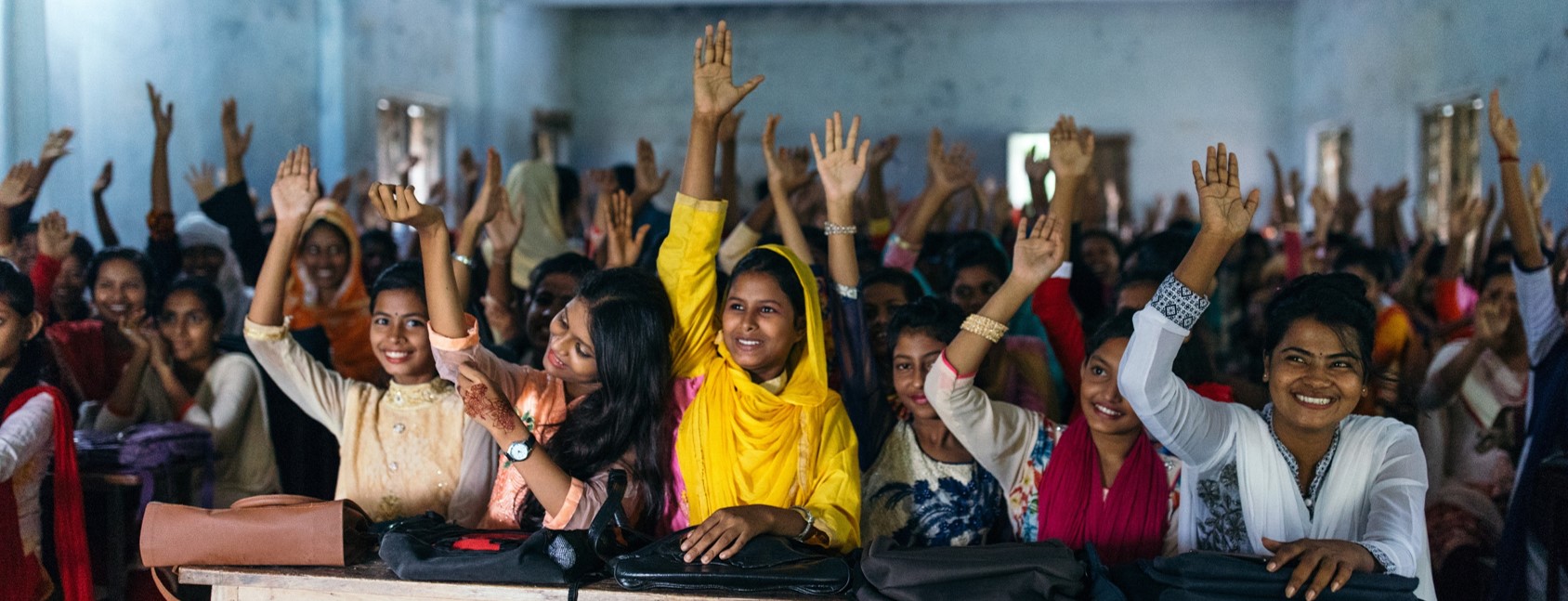
One nursing graduate from the GEP will be hired to be a full-time staff nurse. This will make a significant impact on her life and on the lives of those she serves.
The 47 GEP young women currently in nursing school will all have opportunities to engage in the 2024 Health Seminars as speakers and assistants, giving them chances to sharpen their skills and expertise, to grow in self-confidence, and to practically serve their communities.
Educating and empowering girls and women and helping them live healthier and safer lives has an indirect effect on their communities, as families and entire villages increasingly see examples of girls and young women who are eschewing child marriages, staying in school through high school and college graduation, and pursuing careers which previously were not available to them. They see girls and women who are confident of their value and abilities, aware of their legal rights, and resisting cultural norms and stereotypes that have historically kept girls and women in more vulnerable positions in their society.
Direct Impact: 2,320 girls Indirect Impact: 3,480
UN Sustainable Development Goals
![]()
![]()
![]()
![]()
![]()
Questions for Discussion
- Why do you think the participation of nursing students in local seminars has been so impactful?
- The impact of continuing socially distanced programs during Covid reached far beyond the knowledge imparted during the trainings. Why do you think it was so important to those whose daughters participated?
- How do you think removing the stigma around topics such as menstruation can change the life of a girl, her family, and her community?
How the Grant Will be Used
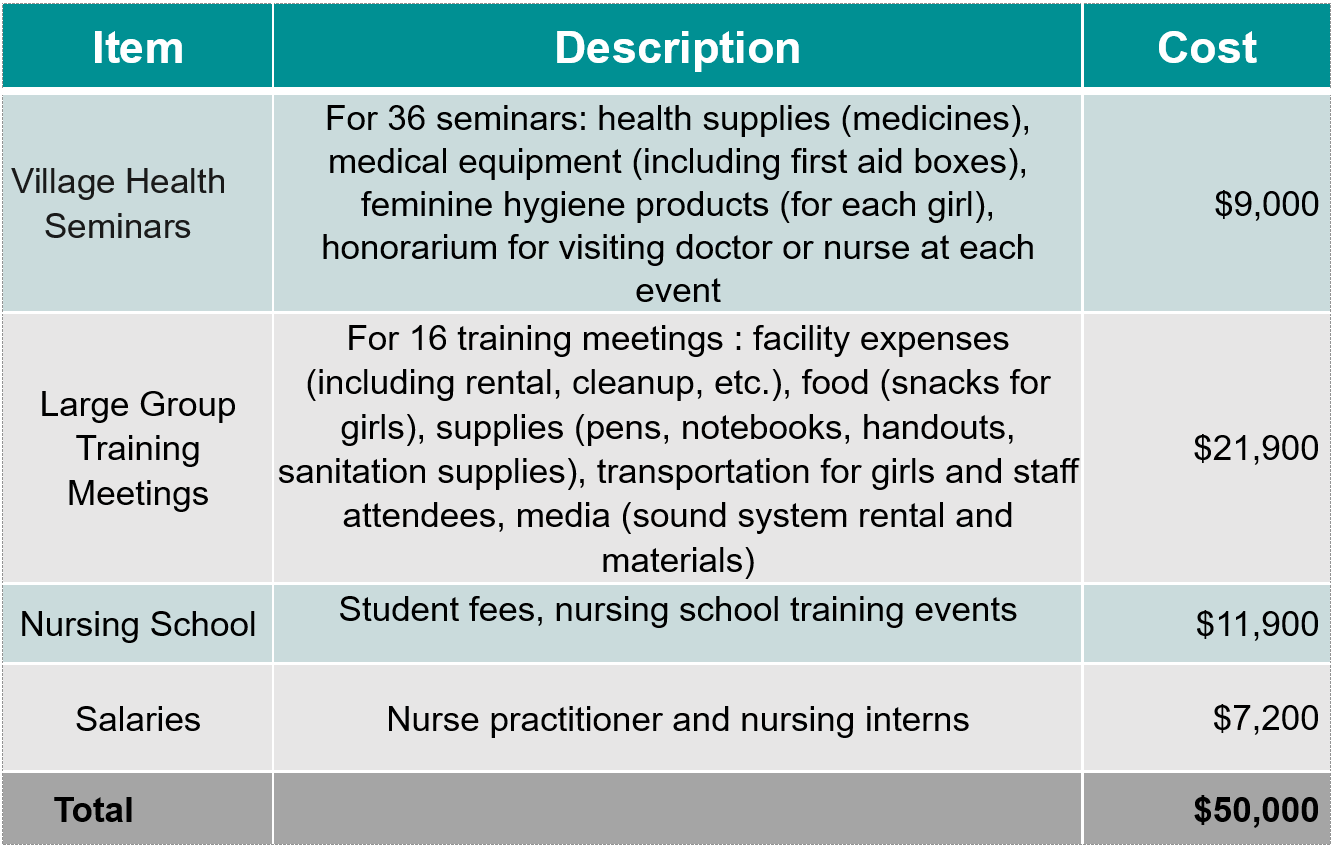
Why We Love This Project/Organization
Speak Up for the Poor has an excellent record of keeping girls in school in low-income communities of Bangladesh, where the rate of child marriage is as high as 80 percent. This project offers age-appropriate teaching and training on optimal health, safety, well-being, and the importance of staying in school. Girls also learn about body autonomy and existing laws surrounding child abuse, child marriage, sexual abuse, domestic abuse, and spousal rape. This is a new reality for girls and women built on affirmation of their value, worth, and importance to their families and societies, and it allows them to flourish and thrive.
Evidence of Success
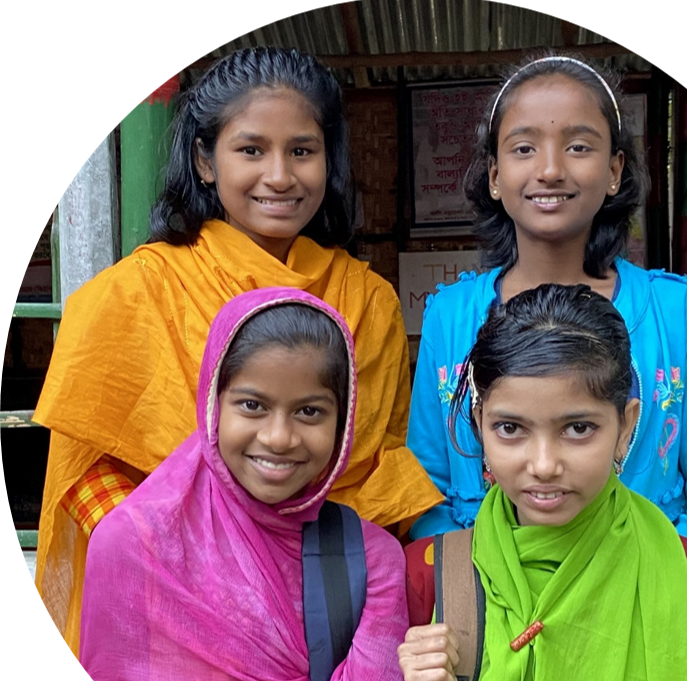 Bangladesh has the highest prevalence of child marriage in South Asia, and is among the 10 countries worldwide with the highest levels. Even though the legal age for marriage in Bangladesh is 18 years, the law is typically not enforced, especially in rural areas where traditional practices that keep girls and women in a second-class, inferior status often go unchallenged. Girls and women in this societal context often hear messages throughout their formative years that they are less valuable and less capable than boys. They are often unaware of their legal rights and of what to do to get help when they experience abuse and their rights and autonomy are violated. But every girl and young woman who participates in Speak Up’s GEP learns about her value and worth. She learns her personal and legal rights, including her right not to be married in childhood, her right to bodily autonomy, her right to be free of physical, sexual, and psychological abuse, and her right to have a voice in the decisions that affect her own life.
Bangladesh has the highest prevalence of child marriage in South Asia, and is among the 10 countries worldwide with the highest levels. Even though the legal age for marriage in Bangladesh is 18 years, the law is typically not enforced, especially in rural areas where traditional practices that keep girls and women in a second-class, inferior status often go unchallenged. Girls and women in this societal context often hear messages throughout their formative years that they are less valuable and less capable than boys. They are often unaware of their legal rights and of what to do to get help when they experience abuse and their rights and autonomy are violated. But every girl and young woman who participates in Speak Up’s GEP learns about her value and worth. She learns her personal and legal rights, including her right not to be married in childhood, her right to bodily autonomy, her right to be free of physical, sexual, and psychological abuse, and her right to have a voice in the decisions that affect her own life.
Through this program hundreds of girls and young women are now staying in school through college graduation, which was extremely uncommon previously in the area where Speak Up for the Poor works. These young women now have the opportunity to rise out of poverty and to use their education and training to educate and serve others. Their families and children in the next generation will be healthier and better off. Through the GEP, girls and women are growing in self-confidence, learning to use their voice, and gaining the opportunity and the tools needed to have agency over their own lives and reach their own dreams and goals rather than being forced into doing what someone else expects of them. They are learning through the GEP how to be healthy, how to be safe, and are being empowered to achieve a better future for themselves. This has an indirect effect on their communities, as more families see examples of girls and women who are pursuing education and careers instead of marrying in childhood and who are resisting other cultural norms that emerge from a low cultural view of girls and women. Community attitudes about what women can be and do are gradually changing in GEP areas, and the social status of girls and women in these communities is improving. Speak Up for the Poor’s goal is not only to change individual girls’ lives, but to change the cultural environment in which they live, toward equal value and equal opportunity for girls and women. While culture change is sometimes slow and gradual, progress is definitely being made, and meaningful change toward greater equality for girls and women is happening.

From Speak Up for the Poor, following the conclusion of the 2021 grant from Together Women Rise:
“As the greatest potential change agents in the world, girls living in poverty are the world’s best investment. So we have been thrilled to receive Together Women Rise funding which has enabled us to help train and influence many girls in rural poverty in Bangladesh who would otherwise be more vulnerable to violence, various health and safety problems, and even sexual abuse. While this struggle continues and will continue for many years to come, progress is being made. Together Women Rise members can be proud that their generous funding has helped more than 1,600 girls and young women involved in the GEP to continue building their lives with dignity, purpose and joy.”
Voices of the Girls
“I was very happy to inform the GEP girls about how to be a nurse. I am very happy to be a GEP student, and at the same time a trainer for this seminar. I am also happy to receive an honorarium from the seminar; it is the first time I have ever received an honorarium in my life. This program is very helpful for GEP girls and I think that every month in every village we need these seminars for girls and mothers.”
– Tumpa, a nursing student and trainer in the Health Seminars
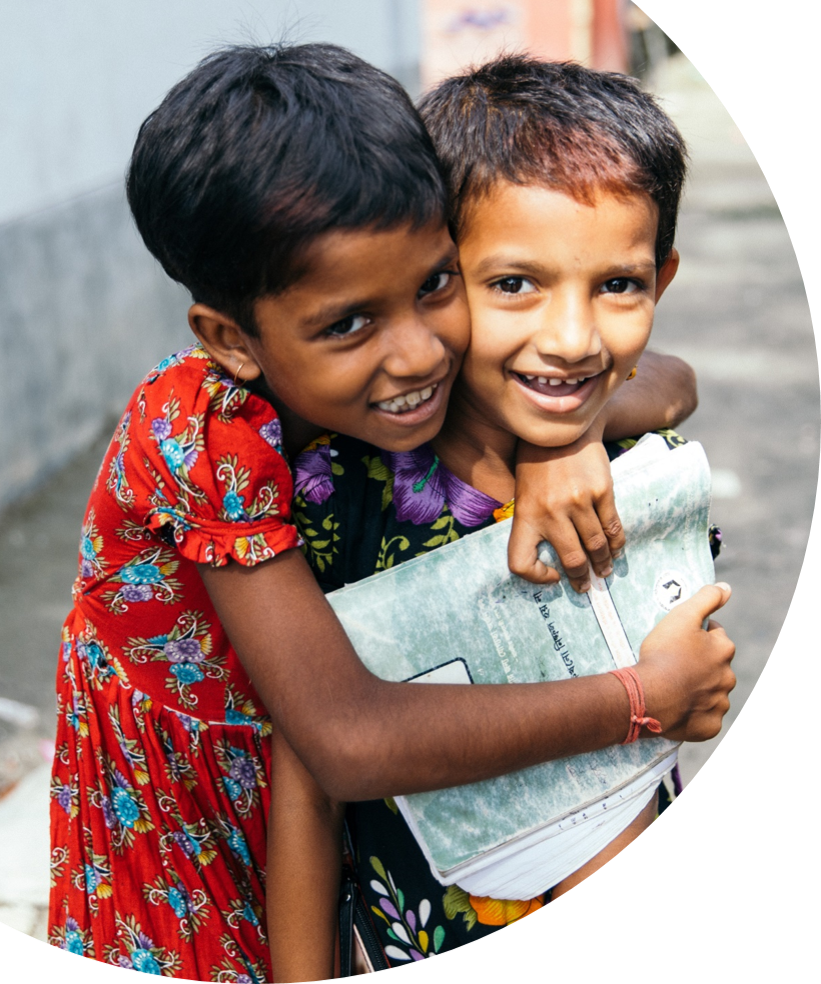 “In the medical seminar I explained the importance of the nursing profession, and now many more girls are willing to study nursing. After participating in the medical seminar, many girls are also now able to take primary treatment at home. During their menstrual period they are now able to stay clean with the use of sanitary napkins.”
“In the medical seminar I explained the importance of the nursing profession, and now many more girls are willing to study nursing. After participating in the medical seminar, many girls are also now able to take primary treatment at home. During their menstrual period they are now able to stay clean with the use of sanitary napkins.”
– Supriya, a nursing student and trainer in the Health Seminars
“The girls listened to me with a lot of enthusiasm, and they were very interested. The girls have been informed about many health issues which they were not aware of before. I like it that now many girls want to be a nurse.”
– Dipti, a nursing student and trainer in the Health Seminars
“We didn’t know about adolescent health before, but now we know and we are happy. I came to know how to measure blood pressure, and I came to know about primary health care and treatment. We hope that these seminars will continue to be organized monthly in every village, and we were happy to get health supplies and materials. We came to know everything in this program about health.”
– Shathi, 11th grade student participant
“I came to know how to use a stethoscope. I now know about primary health care treatment, and how I can solve simple problems in my life. I came to know health tips and now I can solve problems by myself. I came to know many things from this program, so I hope it will be continued.”
– Momota, 10th grade student
“I have changed my dreams and now I would like to be a nurse, from details I learned in this seminar. I came to know about adolescent health, and now I can solve these kinds of problems by myself. We also learned how to measure our BMI.”
– Pinki, 9th grade student
“I came to know about physical changes in adolescence. Now I know a bit about menstruation and adolescent physical health, and I came to know about personal hygiene. I now know the details and issues of menstruation and know how to maintain things properly. I also came to know about dehydration and how to protect ourselves from it.”
– Hira, 10th grade student
About the Organization
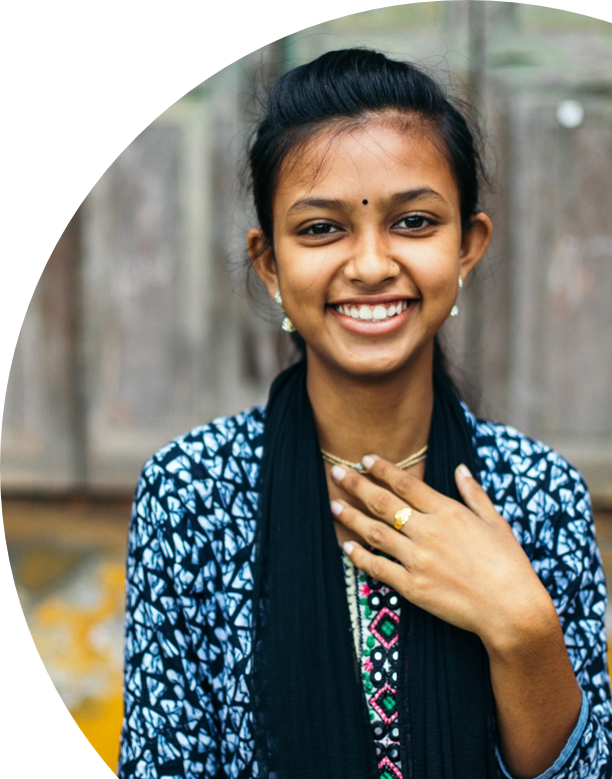 Speak Up for the Poor was established in February 2004 by Troy Anderson. Since 2013, he has lived and worked in Thailand and Bangladesh. The organization officially began operations in Bangkok, Thailand in 2008. In 2012, Speak Up for the Poor initiated the Girls Education Program in Khulna Division, Bangladesh. GEP grew from 20 girls in three villages in 2012 to 1,440 girls in 30 villages by 2020.
Speak Up for the Poor was established in February 2004 by Troy Anderson. Since 2013, he has lived and worked in Thailand and Bangladesh. The organization officially began operations in Bangkok, Thailand in 2008. In 2012, Speak Up for the Poor initiated the Girls Education Program in Khulna Division, Bangladesh. GEP grew from 20 girls in three villages in 2012 to 1,440 girls in 30 villages by 2020.
Speak Up for the Poor’s primary service is the Girls Education Program in Khulna Division, Bangladesh. It provides after-school tutoring, school uniforms, books and materials, and school and exam fees to 1,440 girls from impoverished backgrounds who otherwise would be hindered from staying in school because of poverty and the high prevalence of child marriage, which almost always ends a girl’s education. The organization provides monthly community meetings in the 30 villages in which they work to educate thousands of adults and children regarding the importance of education for girls and the detrimental consequences of child marriage. Speak Up for the Poor also provides regular grade-level meetings for GEP girls to provide inspiration to continue in school, training in life skills and professional skills, and it operates a girls’ dormitory for 90 girls and young women who need a safe living environment to attend school or college in Khulna city.
Where They Work
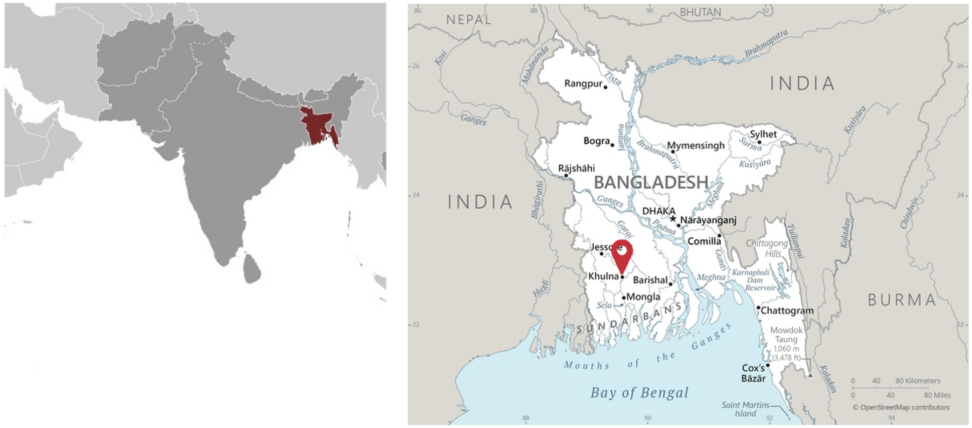
Bangladesh is located in Southern Asia, bordering the Bay of Bengal. Its climate is tropical, with monsoons from June to October. It is the eighth largest country in the world, with a population of 173 million people in 2023. But it is smaller in size than the U.S. state of Georgia, making Bangladesh one of the most densely populated countries on earth.
In 1971, Bangladesh gained independence from Pakistan and became a sovereign nation. It is one of the most ethnically homogenous countries on earth, with 98 percent of the population being ethnic Bengalis.
Bangladesh’s economy has grown roughly 6 percent per year since 2005 despite prolonged periods of political instability, poor infrastructure, endemic corruption, insufficient power supplies, and slow implementation of economic reforms. Although more than half of GDP is generated through the services sector, almost half of Bangladeshis are employed in the agriculture sector, with rice as the single most important product.
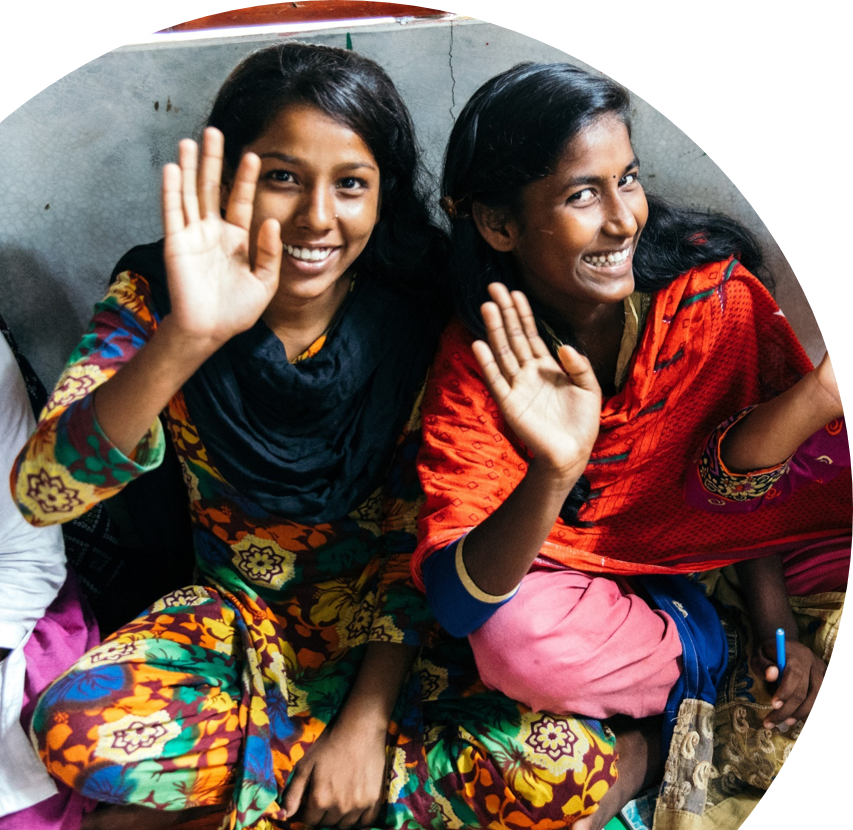 Seventy percent of the land is agricultural. Many people are landless and forced to live on and cultivate flood-prone land. Waterborne diseases are prevalent in surface water. Water pollution, especially of fishing areas, results from the use of commercial pesticides, and ground water is contaminated by naturally occurring arsenic. There are intermittent water shortages because of falling water tables in the northern and central parts of the country. Other issues include soil degradation and erosion, deforestation, destruction of wetlands, and severe overpopulation with noise pollution.
Seventy percent of the land is agricultural. Many people are landless and forced to live on and cultivate flood-prone land. Waterborne diseases are prevalent in surface water. Water pollution, especially of fishing areas, results from the use of commercial pesticides, and ground water is contaminated by naturally occurring arsenic. There are intermittent water shortages because of falling water tables in the northern and central parts of the country. Other issues include soil degradation and erosion, deforestation, destruction of wetlands, and severe overpopulation with noise pollution.
Garments, the backbone of Bangladesh’s industrial sector, accounted for more than 80 percent of total exports in FY 2016-17. The industrial sector continues to grow, despite the need for improvements in factory safety conditions.
The median age in Bangladesh is 27.9 years and life expectancy is 74.2 years. The mean age of mothers at first birth is 18.5 years (2014 est.). The maternal mortality rate is 173 deaths/100,000 live births. The infant mortality rate is 28.3 deaths/1,000 live births.
The risk of major infectious diseases is high. Most prevalent are food or waterborne diseases. Dengue fever and malaria are high risks in some locations, as is rabies.
The literacy rate is 73.9 percent, with 76.7 percent of males being literate, and 71.2 percent of women being literate.
Source Materials
World Fact Book
Speak Up for the Poor
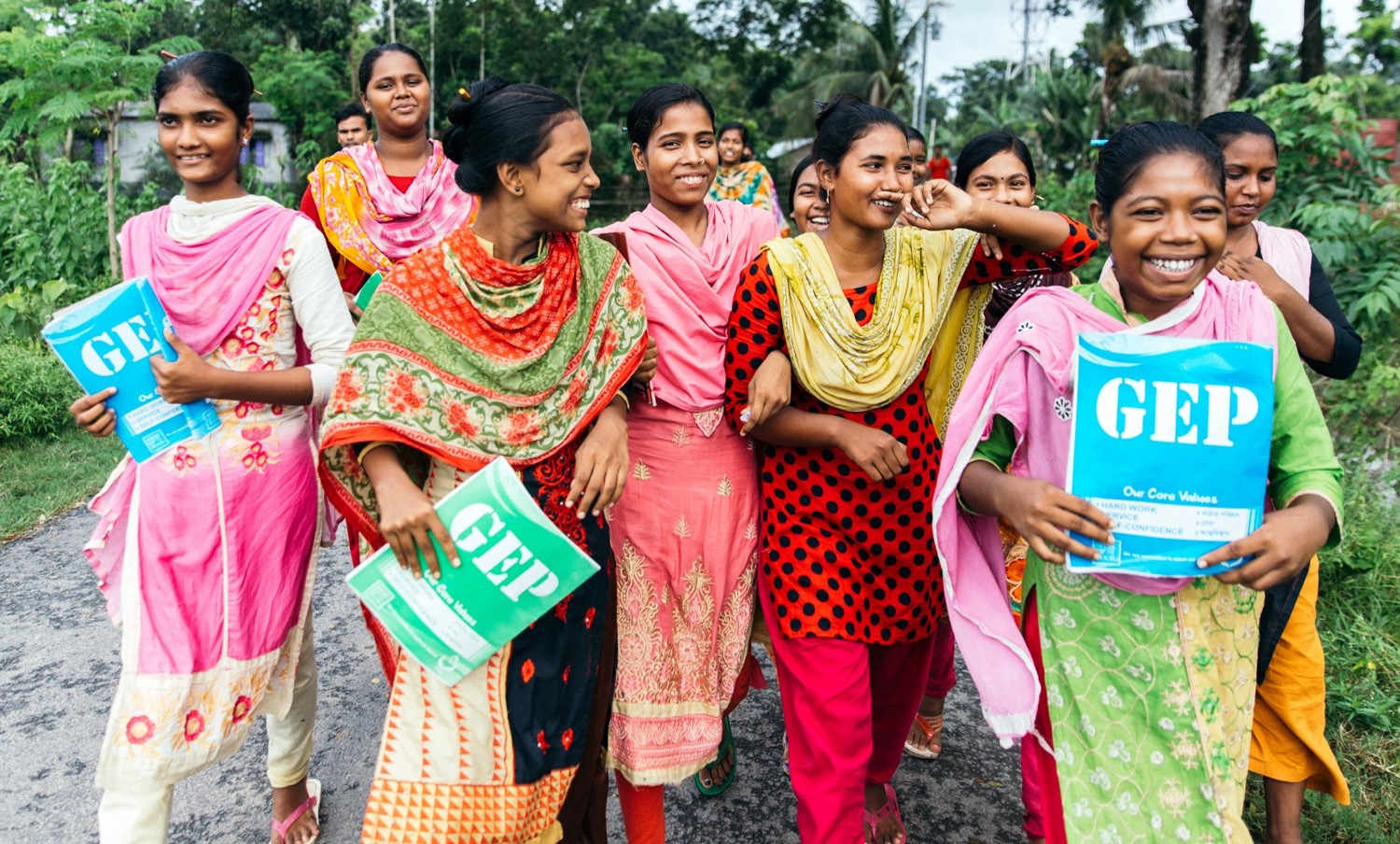
* United Nations Children’s Fund, Ending Child Marriage: A profile of progress in Bangladesh, UNICEF, New York, 2020.
